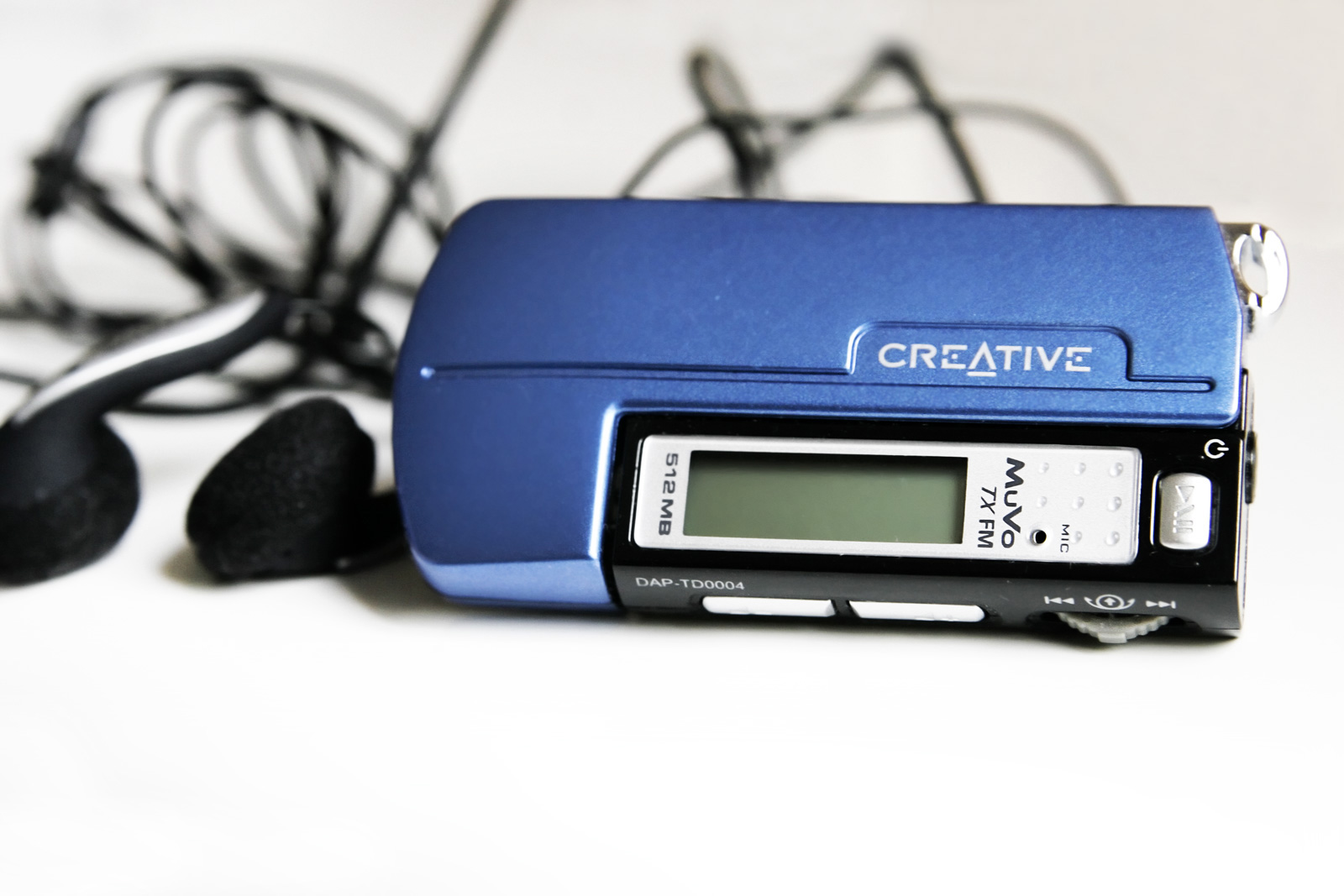|
Portable Media Center
Portable Media Center (PMC) is a portable media player (PMP) platform developed by Microsoft. Announced at the 2003 Consumer Electronics Show (CES), and released in early 2004, it was originally positioned as a competitor to Apple's iPod. All its hard drive-based players use a graphical user interface (GUI) modeled after Media Center, a software portal bundled with Windows XP Media Center Edition. Manufacturers of PMC devices included Creative, Philips, iriver, Samsung, and Toshiba. History The platform was conceived in line with Microsoft's Windows Media Center strategy, where the idea was to have a single media management interface that would be used on both PCs and in consumer devices, including televisions and handhelds. The strategy was developed by Microsoft's Windows Embedded group in partnership with the eHome Division, which formed in February 2001 and started partnerships with companies like Samsung with the goal to "develop new technologies so consumers can enjoy w ... [...More Info...] [...Related Items...] OR: [Wikipedia] [Google] [Baidu] |
Zune
Zune was a brand of digital media products and services that was marketed by Microsoft from November 2006 until it was discontinued in June 2012. Zune consisted of a line of portable media players, a music subscription service known as Zune Music Pass plus Zune Marketplace for music, TV and movies, streaming services for the Xbox 360 game console, and the Zune Software, Zune software media player for Microsoft Windows, Windows PCs which also acted as desktop sync software for Windows Phone. The Zune started and revolved around its line of portable media players (PMP) created in cooperation with Toshiba. Microsoft aimed to challenge and beat Apple Inc., Apple, whose iPod line held an enormous market share. Three hard disk players ranging from 30 GB to 120 GB were released, alongside six flash memory, flash players. However, its overall market share in the U.S. remained low, well below Apple and also lagging the SanDisk Sansa and Creative Zen. Microsoft discontinued all Zu ... [...More Info...] [...Related Items...] OR: [Wikipedia] [Google] [Baidu] |
Portable Media Players
A portable media player (PMP) or digital audio player (DAP) is a portable consumer electronics device capable of storing and playing digital media such as audio, images, and video files. Normally they refer to small, battery-powered devices utilising flash memory or a hard disk for storing various media files. MP3 players has been a popular alternative name used for such devices, even if they also support other file formats and media types other than MP3 (for example AAC, FLAC, WMA). Generally speaking, PMPs are equipped with a 3.5 mm headphone jack which can be used for headphones or to connect to a boombox, home audio system, or connect to car audio and home stereos wired or via a wireless connection such as Bluetooth, and some may include radio tuners, voice recording and other features. In contrast, analogue portable audio players play music from non-digital media that use analogue media, such as cassette tapes or vinyl records. As devices became more a ... [...More Info...] [...Related Items...] OR: [Wikipedia] [Google] [Baidu] |
Pocket PC
A Pocket PC (P/PC, PPC) is a class of personal digital assistant (PDA) that runs the Windows Mobile operating system, which is based on Windows Embedded Compact, Windows CE/Windows Embedded Compact, and that has some of the abilities of modern desktop IBM PC compatible, PCs. The name was introduced by Microsoft in 2000 as a rebranding of the Palm-size PC category and was marketed until 2007. Some of these devices also had Smartphone, integrated phone and data capabilities, which were called Pocket PC Phone Edition. Windows "Windows Mobile Smartphone, Smartphone" is another Windows CE based platform for non-touch and non-PDA devices. In 2007, with the advent of Windows Mobile 6.0, Microsoft dropped the name Pocket PC in favor of a new naming scheme: * Windows Mobile Classic (formerly Pocket PC): devices without an integrated phone; * Windows Mobile Professional (formerly Pocket PC Phone Edition): devices with an integrated phone and a touch screen; * Windows Mobile Standard (for ... [...More Info...] [...Related Items...] OR: [Wikipedia] [Google] [Baidu] |
Windows Mobile
Windows Mobile is a discontinued mobile operating system developed by Microsoft for smartphones and personal digital assistants (PDA). Designed to be the portable equivalent of the Windows desktop OS in the emerging Mobile device, mobile/portable area, the operating system is built on top of Windows CE (later known as Windows Embedded Compact) and was originally released as Pocket PC 2000. Microsoft introduced the Pocket PC keyboard-less PDAs in 2000, with Pocket PC 2000 being the software. It was based on version 3.0 of Windows CE, the operating system originally developed for the Handheld PC in 1996. The next versions were Pocket PC 2002 and Smartphone 2002, the latter of which would power a new category of keypad-based cell phone devices named Smartphone. With the release of Windows Mobile 2003, the software was rebranded to a single "Windows Mobile" for both Pocket PCs and Smartphones, and to connect the brand with its desktop counterpart. Support for SuperH, SH-3 and MIPS ... [...More Info...] [...Related Items...] OR: [Wikipedia] [Google] [Baidu] |


